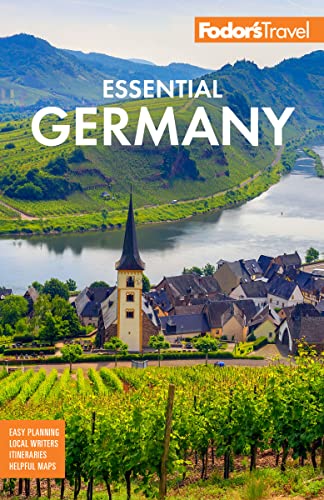Germany's Northern Port Cities and Beach Towns, 8-day Itinerary
The North Sea and Baltic Sea lap the north coast of Germany, feeding a sprawling network of waterways that placed the country at the heart of historically important trade routes. Take in brickwork warehouses in old port cities, soak up the sun on sandy white beaches, float in Brandenburg’s serene lakes, and cruise down the Rhine as you vacation like a local.
Fly in: Cologne Bonn Airport (CGN), Köln
Fly out: Tegel Airport (TXL), Berlin
Day 1: Köln (Cologne)
Fly into Köln and spend your first day in the heart of the Rhineland enjoying the city. Marvel at the Kölner Dom (cathedral), a UNESCO World Heritage site and Gothic masterpiece. Take a boat cruise down the River Rhine past the picturesque Altstadt (Old Town), then celebrate your first night in Germany by sipping a Kölsch beer at one of the city's sleek bars before getting some well-earned sleep.
Days 2 and 3: Hamburg
Hamburg is home to more canals than Venice, and is dotted with cafés and bars overlooking the accompanying locks and bridges. Start in front of the Rathaus (city hall), a lavish structure built with the city's riches from its history as one of the most important trading ports in Europe. Stop to eat the traditional seafarer's favorite, Labskaus, a dish made of minced meat and served with a fried egg on top. Then head to the Speicherstadt, a UNESCO Heritage site, to see traditional redbrick warehouses, and make a stop at Miniatur Wunderland, the world's biggest model railway–-it's a must-see, even if you're not a train enthusiast. Spend two nights in the trendy neighborhood of Sternschanze.
Logistics: Train from Köln to Hamburg Hauptbahnhof; 4 hours.
Day 4: Lübeck
Hop on an intercity train the next morning for a quick ride to Lübeck. Explore on foot through medieval alleyways in this 12th-century city founded by King Henry the Lion. Check out Holstentor, the western gate of the old city center, before making your way into the Altstadt, which boasts more 13th- to 15th-century buildings than the rest of Germany's major northern cities combined. Dine on large servings of seafood specialties from oak tables at Schiffergesellschaft, an old mariners' club. Stay the night in Lübeck.
Logistics: Train from Hamburg Hauptbahnhof to Lübeck; 35 minutes.
Days 5 and 6: Rostock and Warnemünde
Head east toward the city of Rostock, the former East German state's biggest ship-building center and your base for finding the perfect stretch of sandy white beach on the Baltic Sea. From there it's 9 miles north to the resort town of Warnemünde, a popular destination for German tourists. If you're there on the weekend, stop by the Skybar at night to watch ship lights under the stars. Stay in a 19th-century mansion in Rostock's Old Town, the Pental Hotel.
Logistics: Train from Lübeck to Rostock Hauptbahnhof; 1 hour and 50 minutes.
Days 7 and 8: Berlin
Spend your last days in Germany's capital, Berlin, a city with a fascinating history, particularly its recent division and shifting neighborhood dynamics after the fall of the Berlin Wall in 1989. Berlin is notorious for its late-night culture. You can even get some touring in in the evening: Sir Norman Foster's glass dome on the Reichstag (parliament building), the TV tower at Alexanderplatz, and the Checkpoint Charlie Museum don't close until 10 pm or later. Grab a beer and sit by the side of the Spree river, which winds through the middle of the city, before venturing out to the best nightlife in hip neighborhoods like Kreuzberg and Friedrichshain. Escape from the urban center the next morning to relax at one of the many lakes surrounding the city, such as Wannsee. Bring a picnic, rent a paddleboat, and swim in the cool, rejuvenating waters. Fly home the next day.
Logistics: Train from Rostock Hauptbahnhof to Berlin Hauptbahnhof; 2 hours and 40 minutes.




